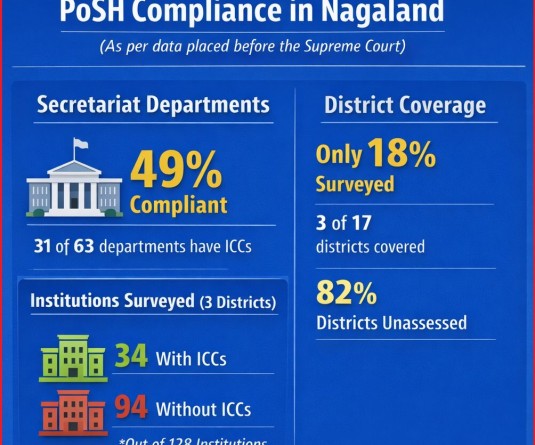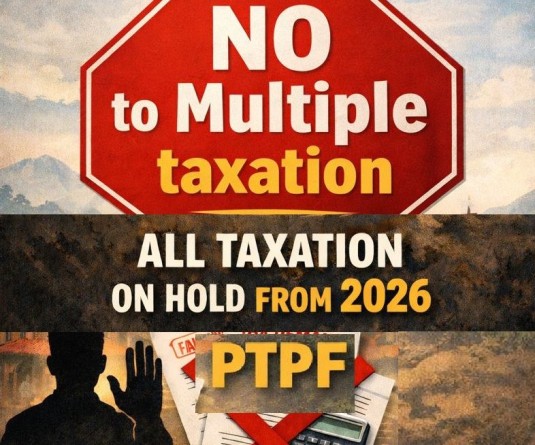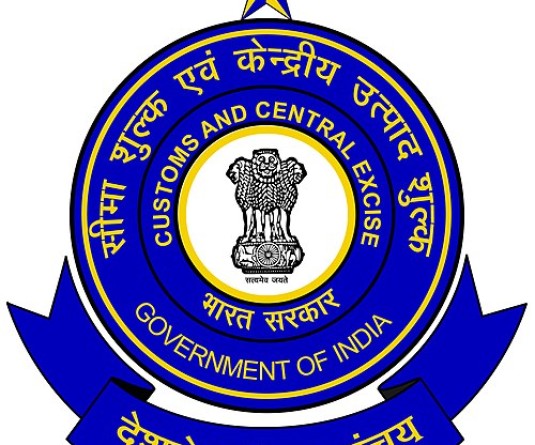
Morung Express News
Kohima | March 6
Minister KG Kenye raised concerns over the unchecked proliferation of unions, associations and societies in Nagaland, calling it a ‘lurking’ issue that has long been overlooked which has never been brought the floor of the August House.
For the first, this issue has brought into the Assembly for discussion.
Initiating the discussion on matters of urgent public importance under Rule-50 on ‘Mushrooming of union and association in Nagaland’ today, he informed that Nagaland has 7,952 registered societies, organisations and unions, with 5,922 inactive and 2,030 as active, and that records prior to 2013 have been misplaced making it difficult to ascertain the exact numbers.
Over 60 years of journey, Nagaland, he stated has seen both progress and challenges and many vices including mushrooming of unions and organisations have crept into ‘our’ society’s way of life unconsciously at every level – from areas, villages, colonies, ranges, districts and the state, which again has its own affiliated sub-bodies.
“Every conceivable group of people wants to associate themselves as a union or organization. Their growth has become unstoppable,” he stated which he added has become ‘uncontrollable and financially burdensome.’
“It's a wake-up call. Maybe it is the right occasion for us to take a reality check on ourselves,” stated Kenye. Although socialising, coming together, forming platforms, unions and association is very natural, he maintained that there is a limit to everything adding “and when it crosses the boundaries, it is time to put a hold on the growth and the progress of these organisations.”
While noting that these organisations has their own sets of activities all of which require substantial financial resources, Kenye said, the pressure on individuals and communities to contribute both voluntarily and out of social obligation has become a heavy burden to people of every class and status.
“Everybody has fallen under the scanner of these tax regimes. It is costing us; it is taxing us heavily on our financial resources. It has become obligatory. We are not under threat, but it has become a social obligation. Compulsive behaviour” stated Kenye.
Beyond finances, Kenye observed a worrying trend where events are often focused more on extravagance rather than purpose with the increasing tendency to compete over who can host the grandest events.
He remarked that the output and product of these activities are minimal while the input and investment is soaring.
While questioning if it is really necessary to have so many unions in the same tribe or at different levels, Kenye suggested that tribal affairs be confined to their respective districts, and urged for a shift in focus from tribal divisions to a collective Naga identity, emphasising the need for unity at a state level.
“We have to think about Nagas. We have to start talking about the unity of Nagas as a whole” he stated.
Need a balance approach
Participating in the discussion, MLA Achumbemo Kikon in a candid address has ‘rejected’ being labelled as ‘just a mere MLA’ by the Nagaland Foothill Road Coordination Committee (NFHCC) in their press statement, stating that he has been elected through the process of democratic norms.
Acknowledging the sensitivity of the issue given that fact that ‘Naga society is a very simple but it's also a very complex society’, Kikon cited the unique socio-political structure of Naga society with its distinct form of democracy deeply rooted in traditions.
While the fundamental rights of the people to form association cannot be override as enshrined in the Indian Constitution under Article 19 (1)(C) and other recognised frameworks and provisions, he also noted with concern over the unchecked proliferation of organisations, which in some cases are interfering in governance and even threatening elected representatives.
He suggested on the need to differentiate registered NGOs working on specific projects who tends to overstep their roles, which he said is a matter of concern when they start threatening elected representatives and the entire structure of the department.
“There is should there should be a benchmark an association forming for certain aims and objective” he firmly stated adding “we are actually crossing the limit somewhere in our functioning.”
This is where, Kikon for a balance approach by way of sensitisation rather than enacting a law to curb forming of associations as ‘we will be committing a mistake by going beyond our jurisdiction.’
Strongly stressing on ‘sensitisation’ on upto what extent an organisation should function and up to with what extent they can come in the day-to-day functioning of the society, Kikon feared “everything will go haywire. There will be anarchy in our society. And this is where our society will not survive.”
Streamline activities
MLA Tongpang Ozukum who has long been associated with students and social organisations acknowledged the crucial role such bodies have played in shaping leaders, not ignoring the uncontrolled formation of new unions and associations as a matter of concern.
“If the formation of new associations or unions or organizations were considered an achievement then definitely Nagaland will be on the top of the list of achievers” he remarked.
He also bluntly stated that ‘we’ don't need those unproductive organisations in our society anymore.
Appreciating some unions and organisations who have adopted cost-cutting measures for their events and programmes, he viewed that it’s time to adopt austerity measures. To this end, he urged CSO, unions etc to prioritise their activities and streamline their functioning so that they do not impose unnecessary financial burden on the people.
Stating that ‘they’ are not the authority to stop any organisations or to ban any organisation, Ozukum suggested on sensitisation.
Thorough scrutiny and screening
Citing example from his own village Chuchuyimlang, MLA Nuklutoshi said it has 119 unions said the numerous unions and associations survive solely through collections and donations.
Citing this huge financial burden as one reason why Naga economy is spiralling down, he termed these collections and donations as “back door begging or back door extortion” as they have no source of income.
To this, he suggested that the village may have a union inclusive of all the other segments – clan, women, students etc, a tribe may have a union but range wise may not be allowed, and that government approval be given for all these unions empowering the administration through notification, where thorough scrutiny and screening with a mandatory NOC from the village council.






